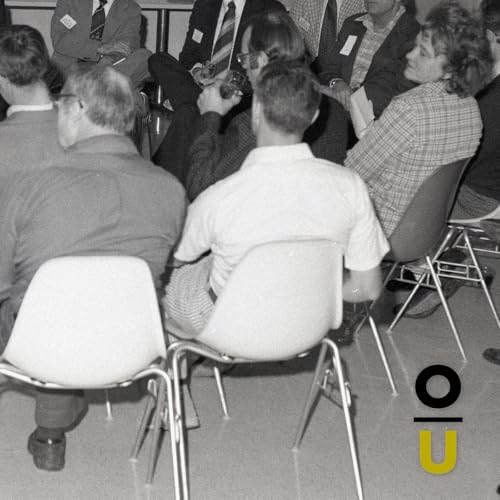Unlocked Patreon episode. Support Ordinary Unhappiness on Patreon to get access to all the exclusive episodes. patreon.com/OrdinaryUnhappiness
Abby and Patrick are joined by one of their favorite writers, Sarah Miller, to talk about her new essay in n+1. Entitled “Pirates of the Ayahuasca,” it’s a first-person narrative, at once understated and devastating, hilarious and cutting, that sees Sarah, struggling with depression and grief, travel from wildfire-ravaged Northern California to the Peruvian Amazon for two weeks of psychedelic treatment under a prominent indigenous shaman. Sarah relates and reflects on her experience, her relationship with the shaman and his other clients, the business model of the “ayahuasca center,” and much more. Along the way, Sarah, Abby, and Patrick unpack broader narratives about therapy, ritual, and healing; the ways we metabolize feelings of guilt, sadness, and desires for change; the unavoidable context of capitalism, global inequality, and climate catastrophe; our expectations for psychedelics, our fantasies of transformative experiences, and what we can learn from plants.
Sarah Miller's writing classes are ongoing, here is a description and contact information.
Sarah Miller, “Pirates of the Ayahuasca”: https://www.nplusonemag.com/issue-50/essays/pirates-of-the-ayahuasca/
Sarah Miller, “Heaven or High Water”: https://popula.com/2019/04/02/heaven-or-high-water/
Sarah’s Substack, The Real Sarah Miller: https://therealsarahmiller.substack.com/
Aldous Huxley, The Doors of Perception: https://www.penguin.co.uk/books/357842/the-doors-of-perception-by-aldous-huxley/9780099458203
Alexander “Sasha” Shulgin and Anna Shulgin, PiHKAL (Phenethylamines I Have Known and Loved): A Chemical Love Story: https://psychedelics.berkeley.edu/resources/pihkal/
Brian Pace and Neşe Devenot, “Right-Wing Psychedelia: Case Studies in Cultural Plasticity and Political Pluripotency”: https://pubmed.ncbi.nlm.nih.gov/34975622/
Neil Whitehead and Robin Wright, editors, In Darkness and Secrecy: The Anthropology of Assault Sorcery and Witchcraft in Amazonia: https://www.dukeupress.edu/in-darkness-and-secrecy
Have you noticed that Freud is back? Got questions about psychoanalysis? Or maybe you’ve traversed the fantasy and lived to tell the tale? Leave us a voicemail! (646) 450-0847
A podcast about psychoanalysis, politics, pop culture, and the ways we suffer now. New episodes on Saturdays. Follow us on social media:
Linktree: https://linktr.ee/OrdinaryUnhappiness
Twitter: @UnhappinessPod
Instagram: @OrdinaryUnhappiness
Patreon: patreon.com/OrdinaryUnhappiness
Theme song:
Formal Chicken - Gnossienne No. 1
https://open.spotify.com/album/2MIIYnbyLqriV3vrpUTxxO
Provided by Fruits Music
 3 mins
3 mins 1 hr and 20 mins
1 hr and 20 mins 1 hr and 57 mins
1 hr and 57 mins Nov 1 20255 mins
Nov 1 20255 mins 1 hr and 46 mins
1 hr and 46 mins Oct 18 20254 mins
Oct 18 20254 mins Oct 11 20251 hr and 30 mins
Oct 11 20251 hr and 30 mins 3 mins
3 mins

